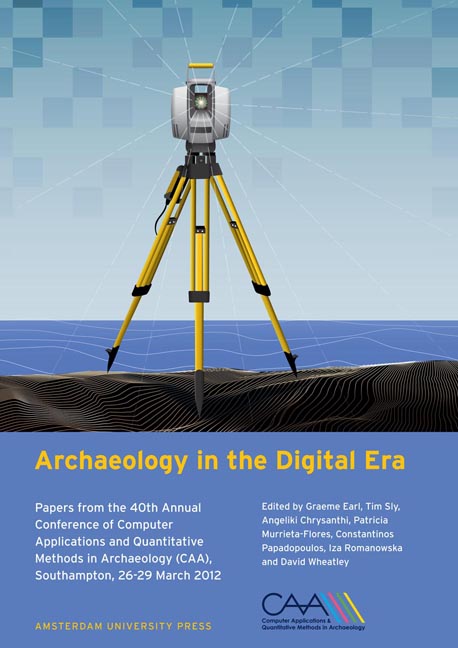 Archaeology in the Digital Era
Archaeology in the Digital Era Reflections on the Rocky Road to E-Archaeology
Published online by Cambridge University Press: 16 February 2021
Summary
Abstract:
Bridging the gap between humanities and science (or, according to other classificatory schema, between social and natural - or between “soft” and “hard” - sciences), archaeology should be an ideal discipline for digital applications. That the reality has proven otherwise offers an opportunity for examining the way various disciplines adopt - or adapt to - technological change. The diversity of potential data sources available to archaeologists makes it easy to understand how archaeology could benefit from the use of new technologies, especially since archaeology has long been criticised for producing too much data. More important is the fact that much data has always been difficult to access, stored either in remote archives or published in obscure journals of limited distribution or limited edition monographs. Computing has simply added more items to the menu - more data from more data sources - without necessarily addressing continued problems of data accessibility. That there are other aspects worth considering will be shown by examining the example provided by the Archeolnf project. Developed by researchers at the Universities of Gottingen, Dortmund and Bochum, Archeolnf was intended to provide German Classical Archaeologists with a long-term repository for primary excavation data. Until recently, it has been fairly common for each archaeological project (excavation, regional survey to discover new sites, etc.) to develop its own database. Since most of these used their own data structure and terminology, it is often difficult for data to be shared between one project and another, even in those rare cases when the databases themselves are accessible. So it was intended that Archeolnf would integrate individual site databases into a single, easily-accessed database, and thereby provide a service similar to others which have already been successful elsewhere (notably the UK and Ireland). Development ofArcheolnf has been hindered by an unexpected problem in the form of a lack of willingness on the part of prospective users to submit data that can be imported into our database, not even for testing purposes (i.e. to see if the import and search processes work). Thus we face a vicious circle: we can't test the system because we don't have any data, and it is difficult trying to attract prospective users if we can't show the system in operation. So technical problems aside, development has been delayed because of the need to create “synthetic data” which simulates results.
- Type
- Chapter
- Information
- Archaeology in the Digital EraPapers from the 40th Annual Conference of Computer Applications and Quantitative Methods in Archaeology (CAA), Southampton, 26-29 March 2012, pp. 224 - 236Publisher: Amsterdam University PressPrint publication year: 2014


